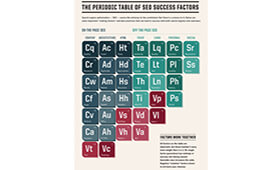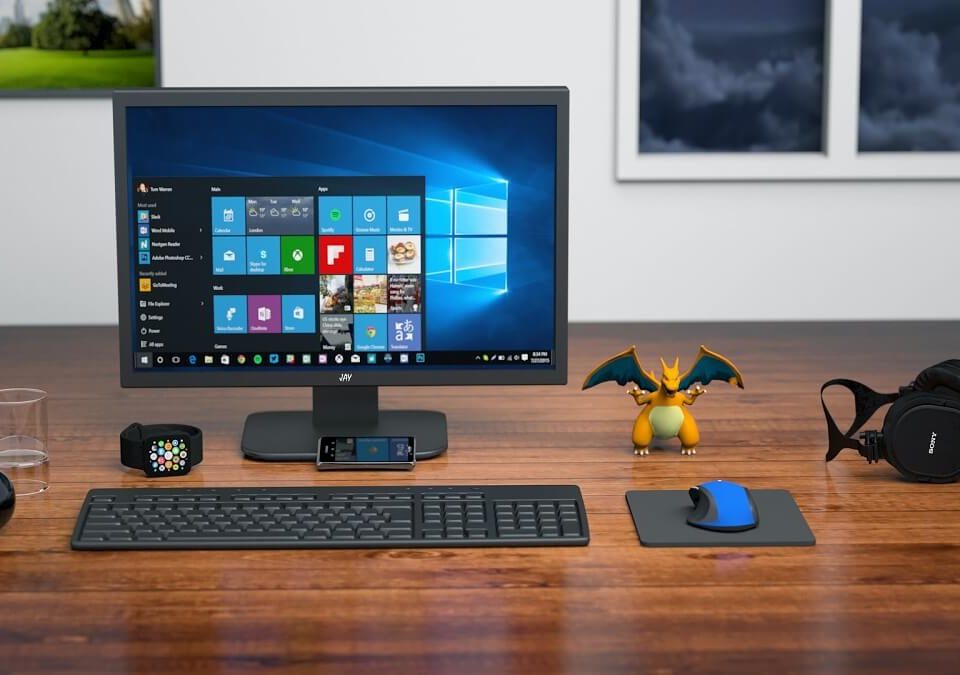
The periodic table of SEO success factors part 11, link building
November 27, 2015
The periodic table of SEO success factors part 13, Social Media
December 2, 2015In these series of articles I covered five columns of the “elements” of the periodic table of SEO success factors. In this article, I am going to explain the sixth column which is personalization.
Some years ago everyone saw exactly the same search results. But today, no one sees exactly the same search results. Everyone gets a personalized experience even in private browsing windows.
Of course, there’s still a lot thing in common. It’s not that everyone sees completely different results. Instead, everyone sees many of the same “generic” listings. But there will also be some listings appearing because of where someone is, whom they know or how they surf the web.
Pc: Country
The easiest personalization ranking factors to understand is that people are shown results relevant to the country they’re in. For example, if you are in the US you will see different results as someone that is in the UK or Germany.
If your site isn’t deemed relevant to a particular country, then you’ve got less chance of showing up when country personalization happens. If you feel you should be relevant, then you’ll probably have to work on your international SEO.
Pl: Locality
Search engines don’t stop personalizing at the country level. They’ll tailor results to match the city based on the user’s location.
As with country personalization, if you want to appear when someone gets city-specific results, you need to ensure your site is relevant to that city.
Ph: Personal History
The personal history is an important factor and the search engines will show different results based on the personal history of someone searching the web. For example which page has someone visited before? Has someone liked or twitter or +1 a specific page etc?
This type of personal history is used to varying degrees and ways by all the search engines to influence search results. Unlike country or city personalization, there’s no easy way to try and make yourself more relevant.
Instead, it places more importance on first impressions and brand loyalty. When a user clicks on a “regular” search result, you want to ensure you’re presenting a great experience so they’ll come again. Over time, they may seek out your brand in search results, clicking on it despite it being below other listings.
This behavior reinforces your site as one that they should be shown more frequently to that user. Even better if they share it on their social accounts such as a Like, +1 or Tweet that indicates a greater affinity for your site or brand.
History is even more important in new search interfaces, which will proactively present “cards” to users based on explicit preferences (i.e. – which sports teams or stocks do you track) and search history.
Ps: Social Connections
What do someone’s friends think about a website? This is one of the newer ranking factors to impact search results. Someone’s social connections can influence what they see on Google and Bing.
Those connections are what truly matter because search engines view those connections as a user’s personal set of advisors. Offline, you might trust and ask your friends to give you advice on a restaurant or gardening.
Increasingly, when you search today search engines are trying to emulate that offline scenario. So if a user is connected to a friend and that friend has reviewed a restaurant or shared an article on growing tomatoes then that restaurant and article may rank higher for that user.
If someone can follow you, or easily share your content, that helps get your site into their circle of trust and increases the odds that others they know will find you. Nowhere is this more transformative than Google+, where circling a site’s Google+ Page will change the personalized search results for that user?



